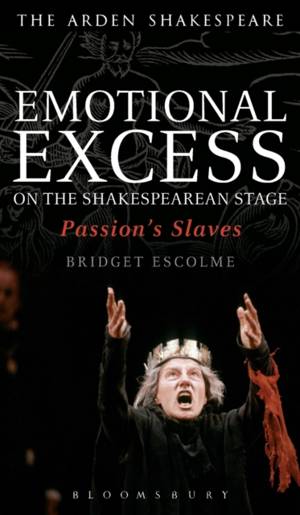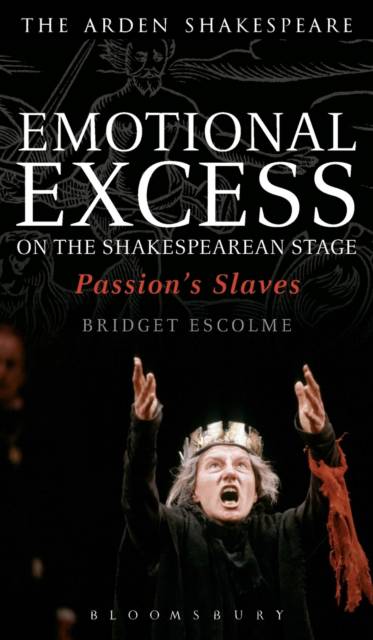
- Afhalen na 1 uur in een winkel met voorraad
- Gratis thuislevering in België vanaf € 30
- Ruim aanbod met 7 miljoen producten
- Afhalen na 1 uur in een winkel met voorraad
- Gratis thuislevering in België vanaf € 30
- Ruim aanbod met 7 miljoen producten
Zoeken
€ 271,45
+ 542 punten
Uitvoering
Omschrijving
Emotional Excess on the Shakespearean Stage demonstrates the links made between excess of emotion and madness in the early modern period.
This open access book argues that the ways in which today's popular and theatrical cultures judge how much is too much can distort our understanding of early modern drama and theatre. It argues that permitting the excesses of the early modern drama onto the contemporary stage might free actors and audiences alike from assumptions that in order to engage with the drama of the past, its characters must be just like us. The book deals with characters in the plays of Shakespeare and his contemporaries who are sad for too long, or angry to the point of irrationality; people who laugh when they shouldn't or make their audiences do so; people whose selfhood has broken down into an excess of fragmentary extremes and who are labelled mad. It is about moments in the theatre when excessive emotion is rewarded and applauded - and about moments when the expression of emotion is in excess of what is socially acceptable: embarrassing, shameful, unsettling or insane. The book explores the broader cultures of emotion that produce these theatrical moments, and the theatre's role in regulating and extending the acceptable expression of emotion. It is concerned with the acting of excessive emotion and with acting emotion excessively. And it asks how these excesses are produced or erased, give pleasure or pain, in versions of early modern drama in theatre, film and television today. Plays discussed include Hamlet, Romeo and Juliet, The Spanish Tragedy, Twelfth Night, Much Ado About Nothing, Measure for Measure, and Coriolanus. The ebook editions of this book are available open access under a CC-BY-NC-ND 3.0 licence on bloomsburycollections.com. Open access was funded by Knowledge Unlatched.Specificaties
Betrokkenen
- Auteur(s):
- Uitgeverij:
Inhoud
- Aantal bladzijden:
- 344
- Taal:
- Engels
- Reeks:
Eigenschappen
- Productcode (EAN):
- 9781408179666
- Verschijningsdatum:
- 2/01/2014
- Uitvoering:
- Hardcover
- Formaat:
- Genaaid
- Afmetingen:
- 130 mm x 201 mm
- Gewicht:
- 453 g

Alleen bij Standaard Boekhandel
+ 542 punten op je klantenkaart van Standaard Boekhandel
Beoordelingen
We publiceren alleen reviews die voldoen aan de voorwaarden voor reviews. Bekijk onze voorwaarden voor reviews.







